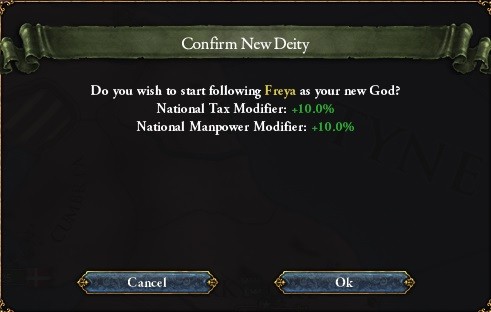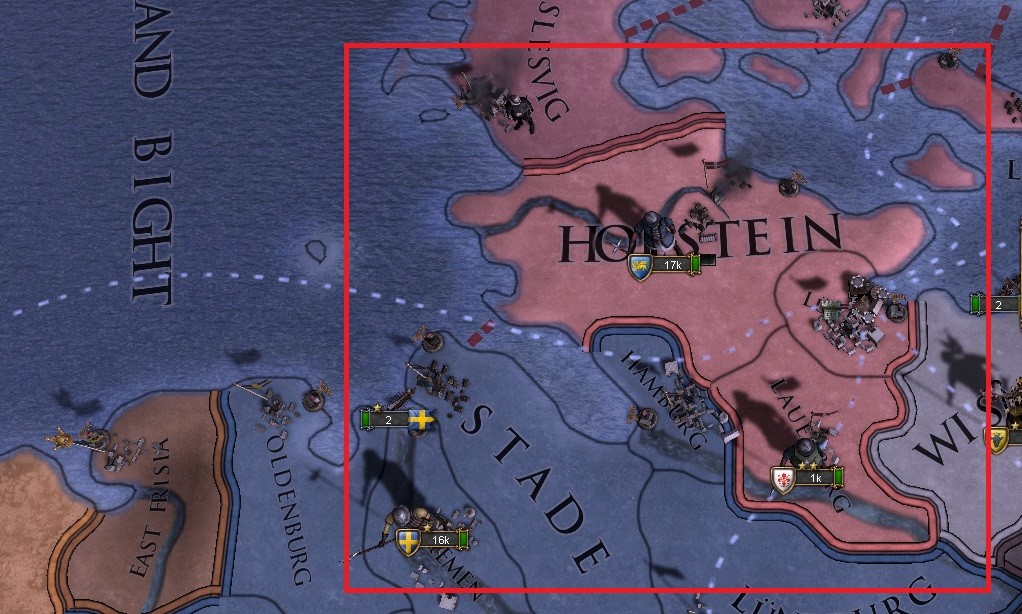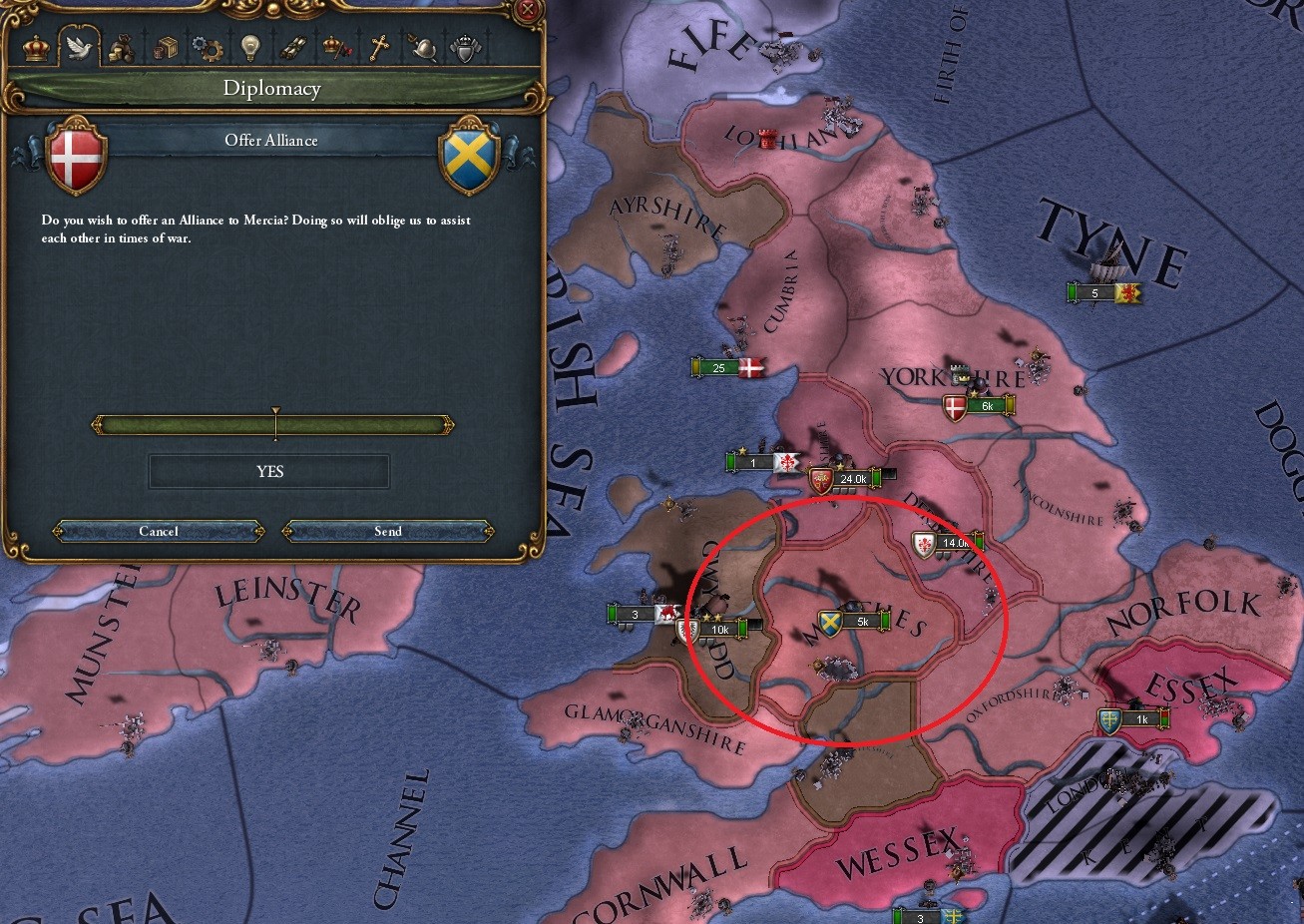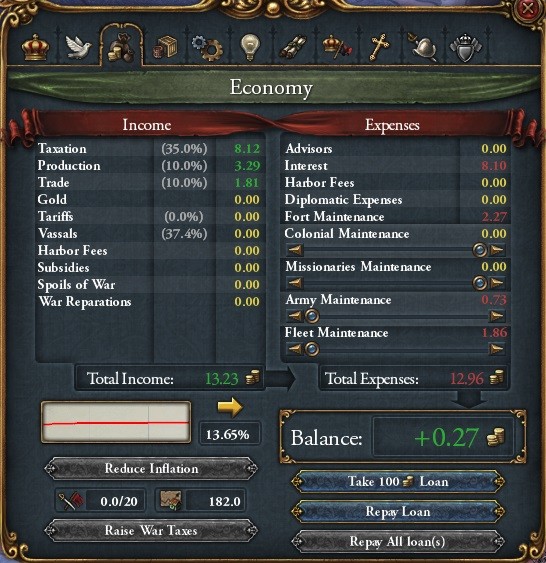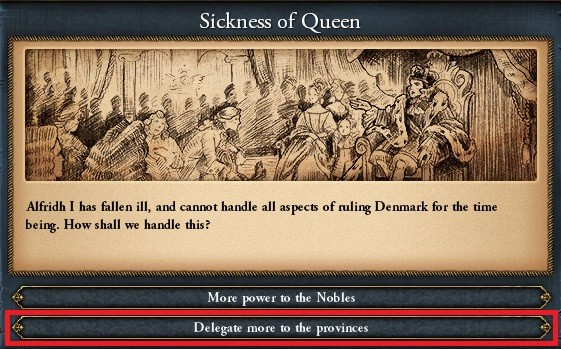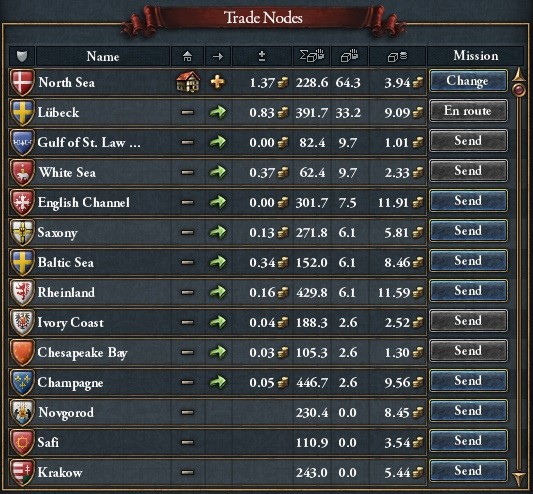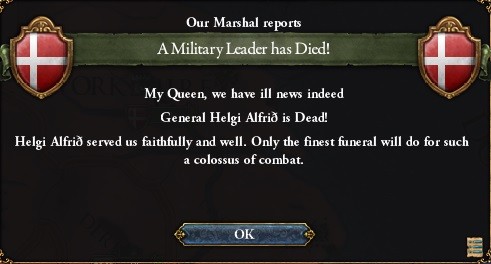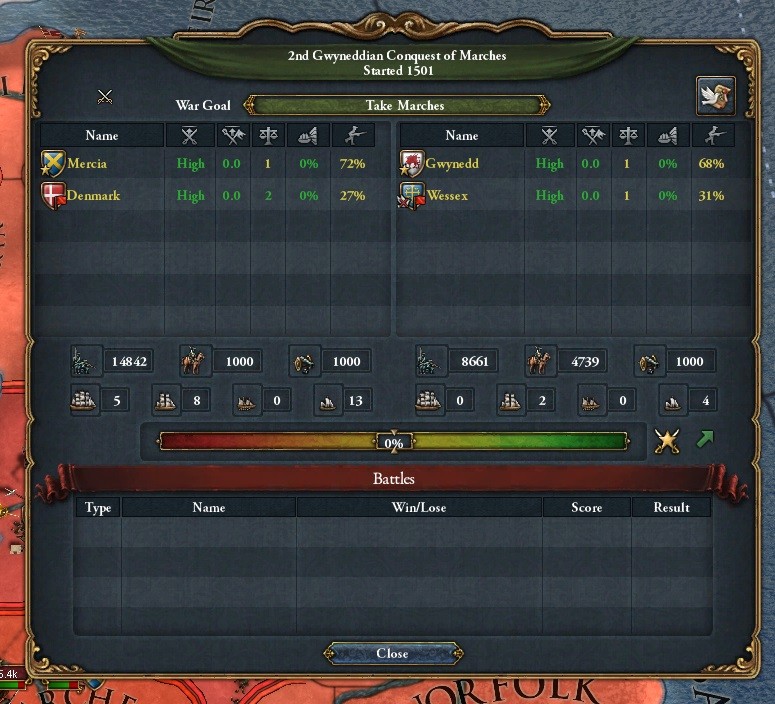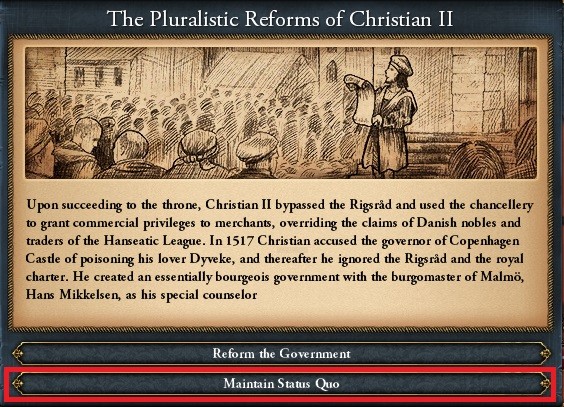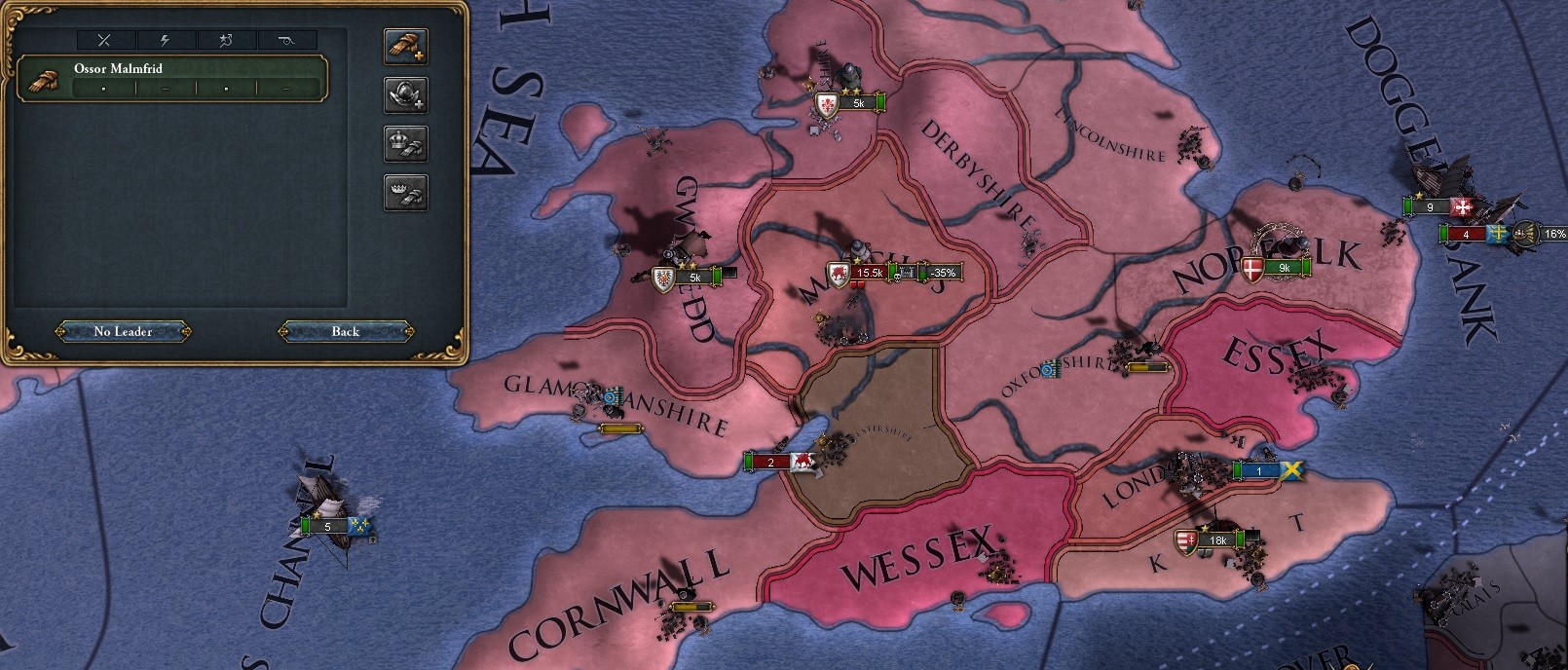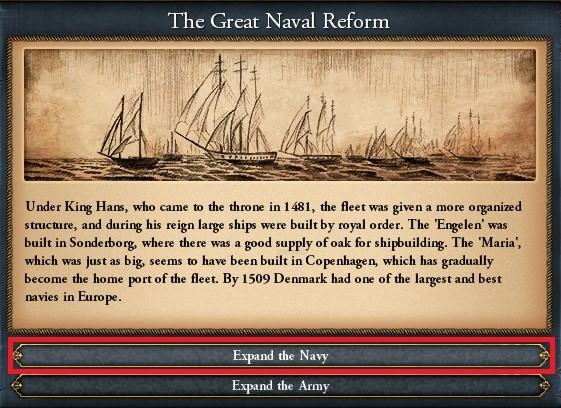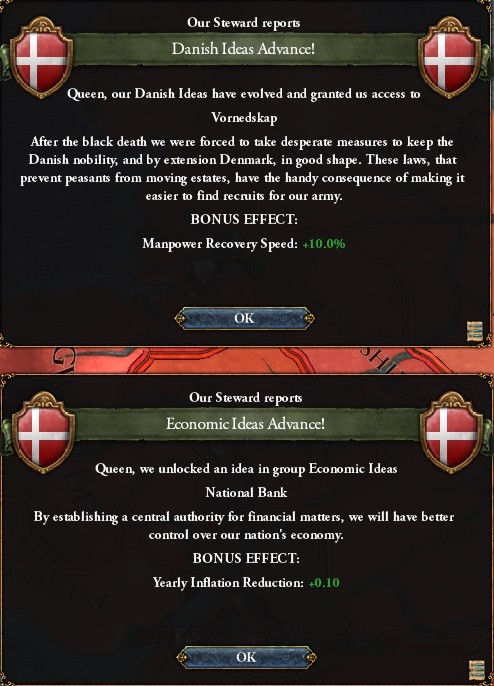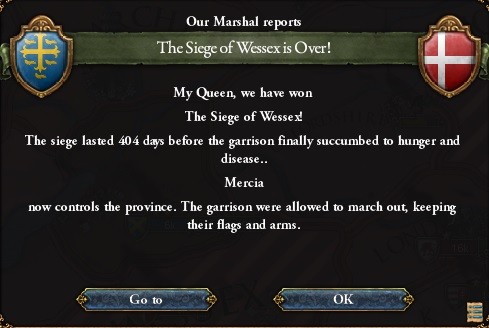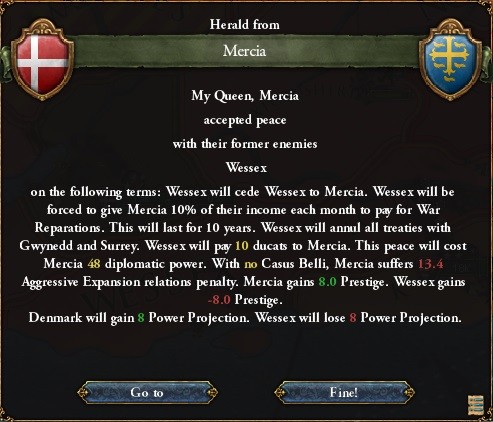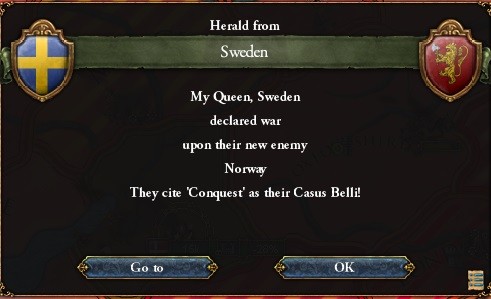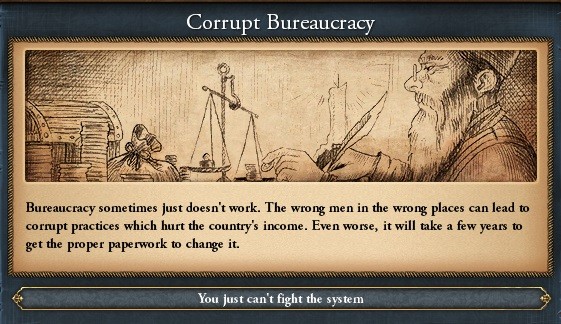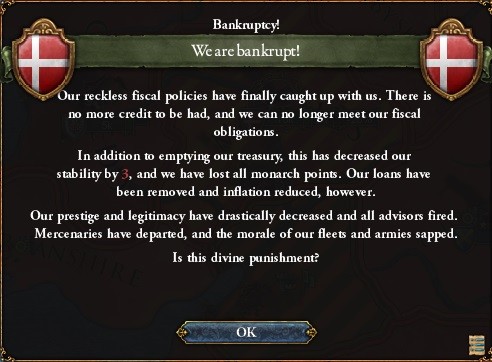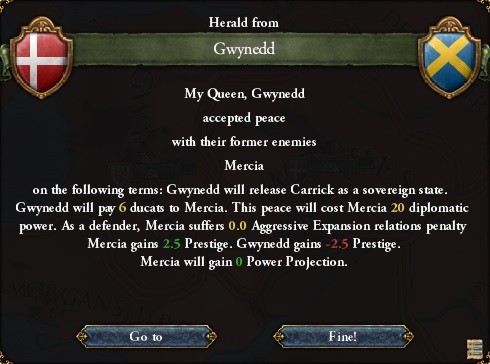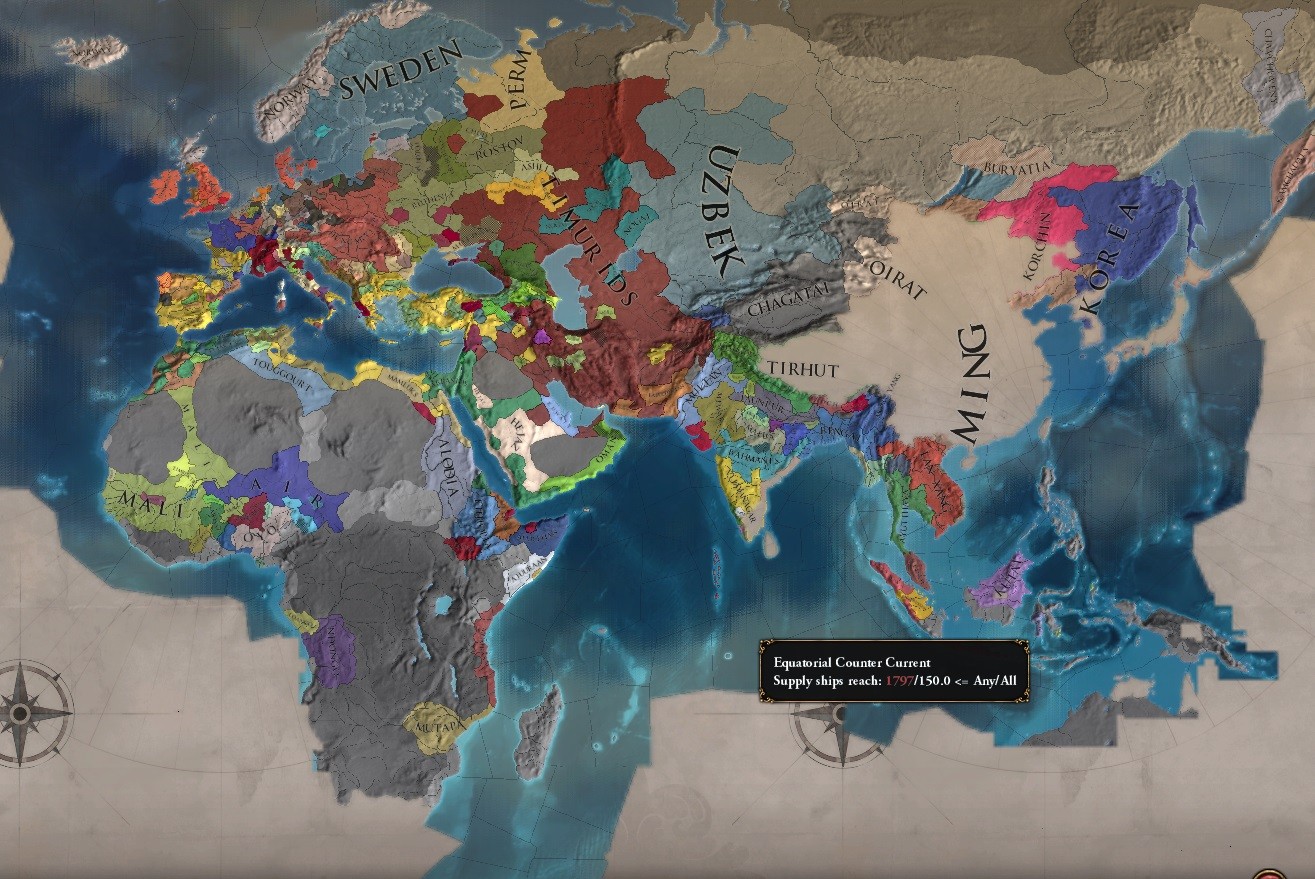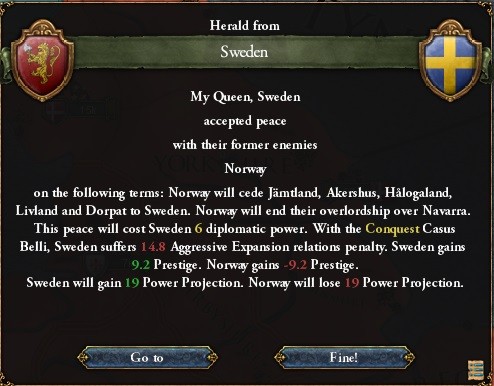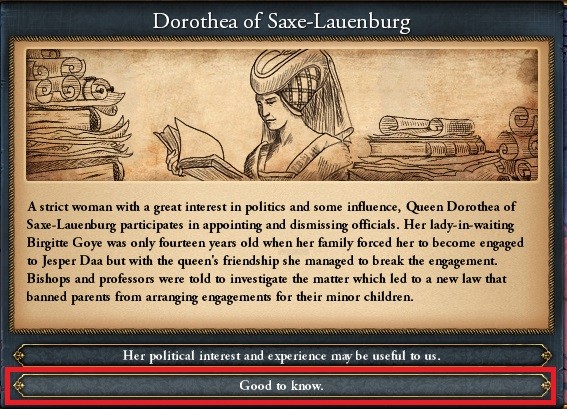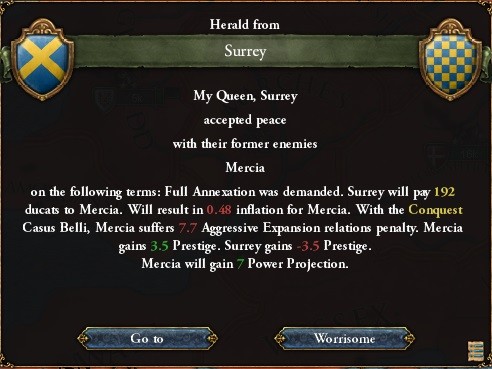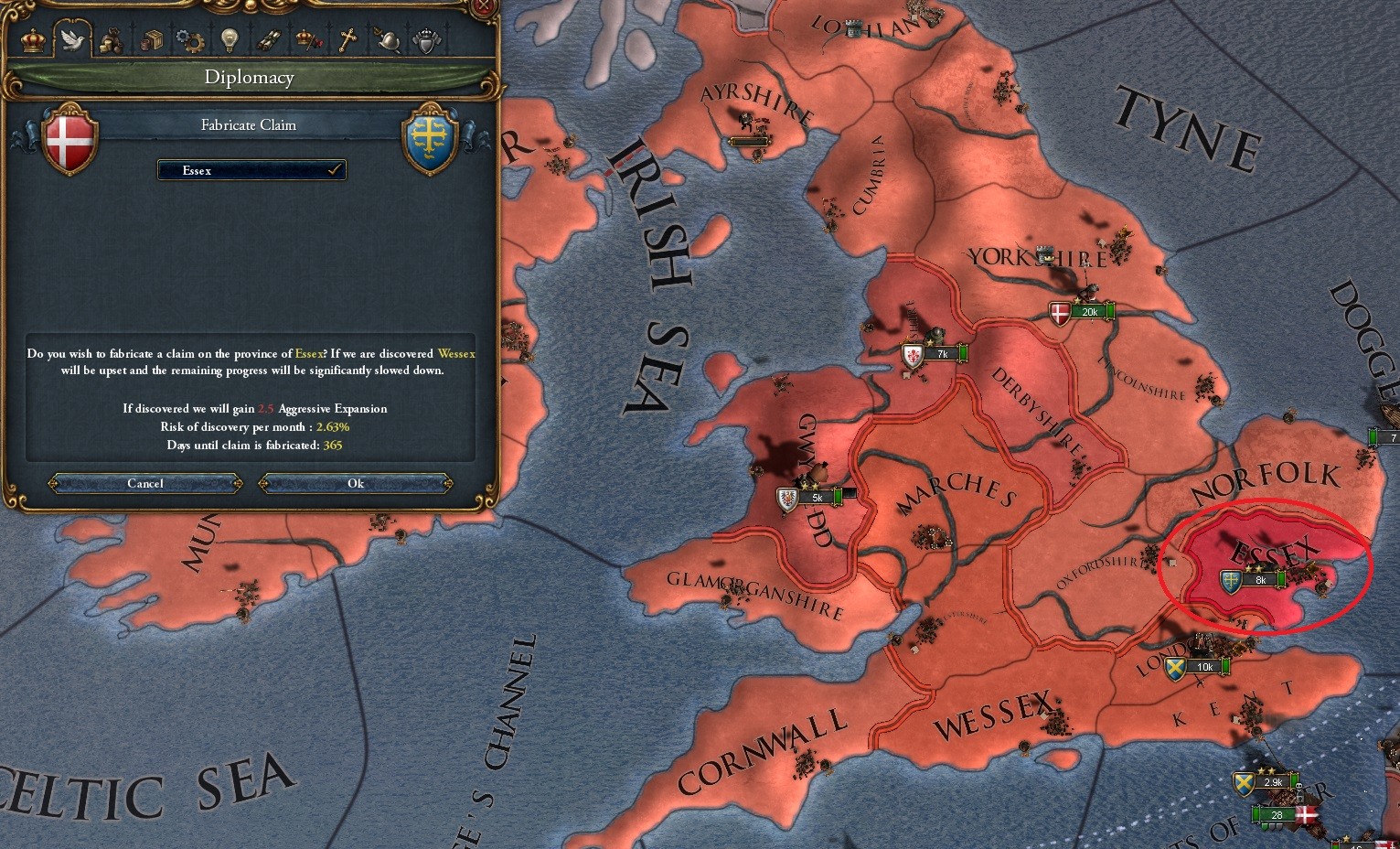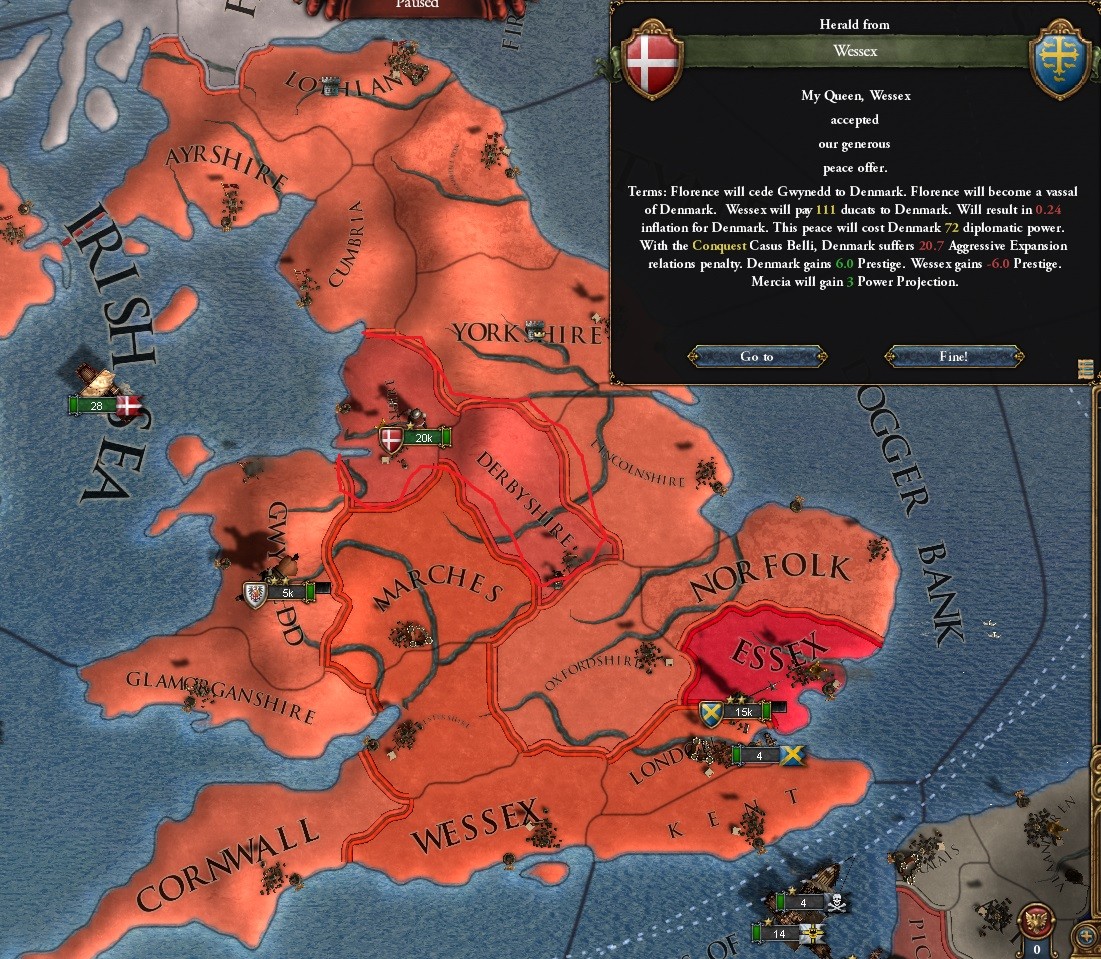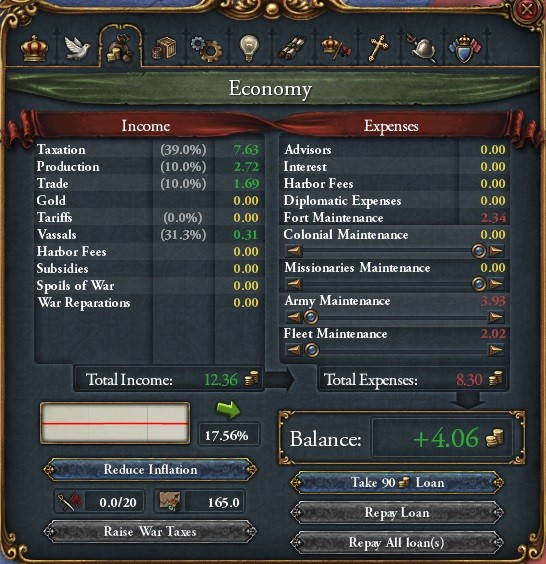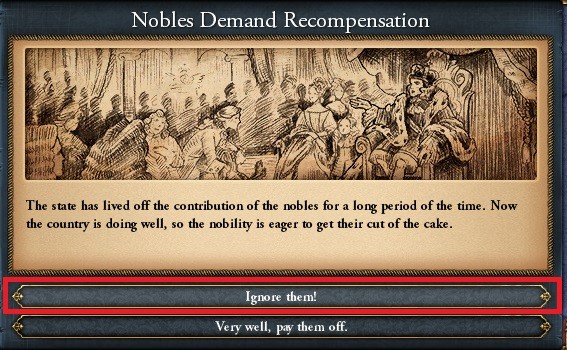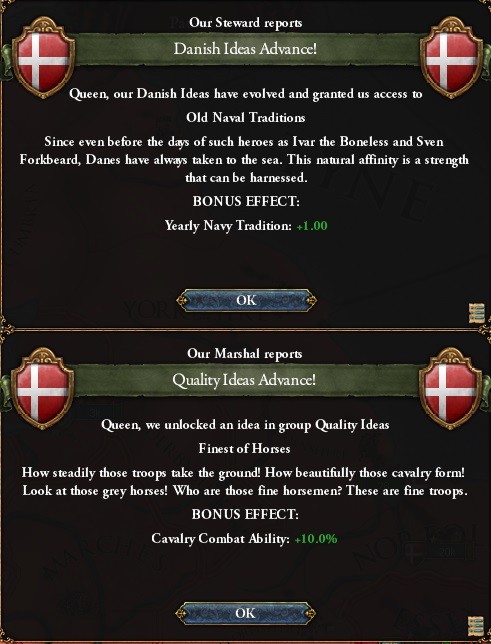Chapter 5: The Ban
As some of Denmark's greatest families had horse-drawn carts take away the family Hvitserk's treasures, Alfridh steamed. All she had left to her name was Skullsplitter (recently bloodied after a few of the more foolish nobles tried to convince her to part with it) and Castle Jorvik's edifice. Had the technology existed at the time, it was a certainty that the castle would have been gone too. She had mortgaged most of her family's possessions on wars that were either indecisive or disastrous. Her advisors were gone, except for loyal Ossor Malmfrid, her Marshal, and her son Gunnar.
Gunnar, now 19, was obsessed with gadgets and trickery of all kinds and spent much of his time with engineers and builders. Ossor tried to get him to join the army, where some of his ideas might be of use, but Gunnar did not want any job that would deny him the right to travel. Travel he did; he spent the better part of two years in Sweden, then lived in France for a time. He loved Westerners and tried to convince his mother to adopt some of their customs, but Alfridh would not reject the old ways. At least he never accepted the White Christ; he paid homage to the old gods, just as his mother and his ancestors had.
With her gallivanting son out of her hair, Alfridh knew she had to find a way to regain the power she once held. The Norse were (and, of course, are) warriors, and if she could win a few victories, much of her old support would return. She needed to crown herself in glory in order to get the people to accept the crown on her head. Yet, she needed money to achieve these goals, and the nobles would certainly never agree to lend her money. Even most of the wealthy banks of Europe were leery of lending her any gold. The peasantry was already angry because of the bankruptcy, and a decision to execute some ringleaders of an artisan revolt did her few favors.
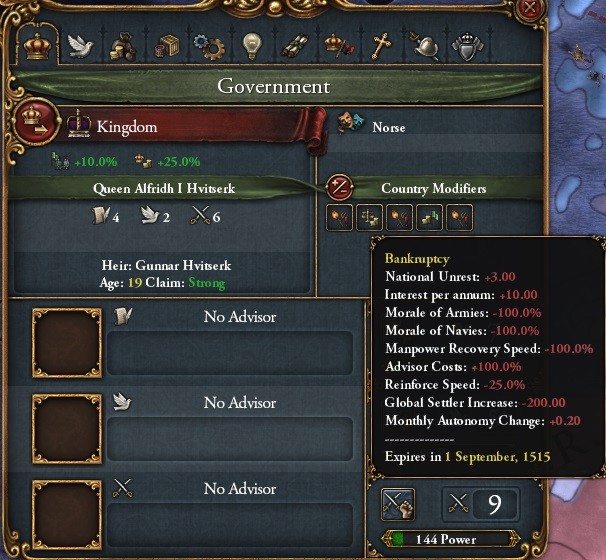 The collapse of the Danish economy ensured that loans would be hard to find until 1515. Not a few times, Alfridh wished she could just pillage to earn the money, as her forebears had done so. Yet even pillaging cost money in the modern era.
The collapse of the Danish economy ensured that loans would be hard to find until 1515. Not a few times, Alfridh wished she could just pillage to earn the money, as her forebears had done so. Yet even pillaging cost money in the modern era.
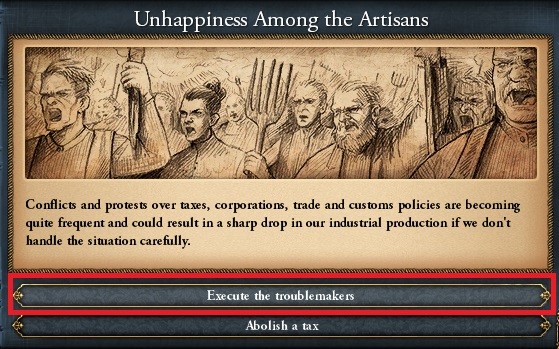 The Artisan's Revolt (8 March 1508) was an attempt to have some of the richer peasants fill the power vacuum and reduce taxes. The ringleaders forgot that Skullsplitter was still the symbol of the Hvitserks.
The Artisan's Revolt (8 March 1508) was an attempt to have some of the richer peasants fill the power vacuum and reduce taxes. The ringleaders forgot that Skullsplitter was still the symbol of the Hvitserks.
The first step to returning to a state of growth was to keep expenses manageable. Instead of spending on the army or navy, Alfridh devoted her money to building up her country. She ordered the construction of a Temple to Freya in Lothian, which would not only please the gods but provide a new way to bring in taxes. A good harvest in 1510 allowed her to throw a feast and invite many of the wealthiest non-nobles in Denmark to Castle Jorvik.
The expense of a party seemed frivolous to some, but in reality, it was a shrewd technique to establish a new power base. If the nobles still plotted against her, wealthy commoners were eager to get a taste of the power nobility once enjoyed. The towns and cities of Denmark had always resented the decadence and waste of the rural lords of Denmark, so enlisting them significantly increased her support. Ossor Malmfrid made sure the military stayed loyal. As the Temple of Lothian did bring in more income, much of that income went to restore her family's prestige by enlarging and strengthening Castle Jorvik and hiring the finest poets, artists, and playwrights to come to Jorvik and decorate it. It was a Golden Age of Culture. With intellectuals, wealthy commoners, and the army giving her influence and power, she was able to call a Great Moot of the Kingdom's nobility. She had a nasty surprise in store for the faithless nobility.
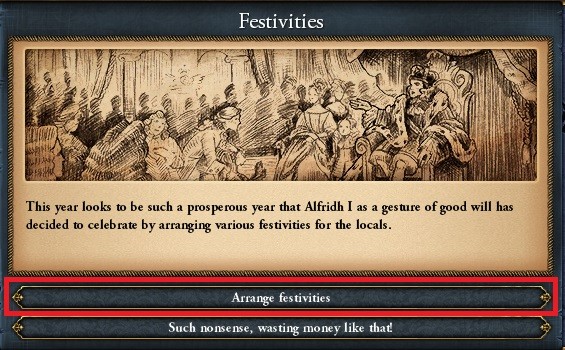
The feast of Freya on 8 March 1510 is still one of the most legendary festivals in the history of Denmark. Those Norse who have adopted Freya as their patron celebrate 8 March to this day.
The decisive defeat of Norway by Sweden (8 October 1510) was a source of inspiration to all Danes, but the specific ramifications only became clearer much later.
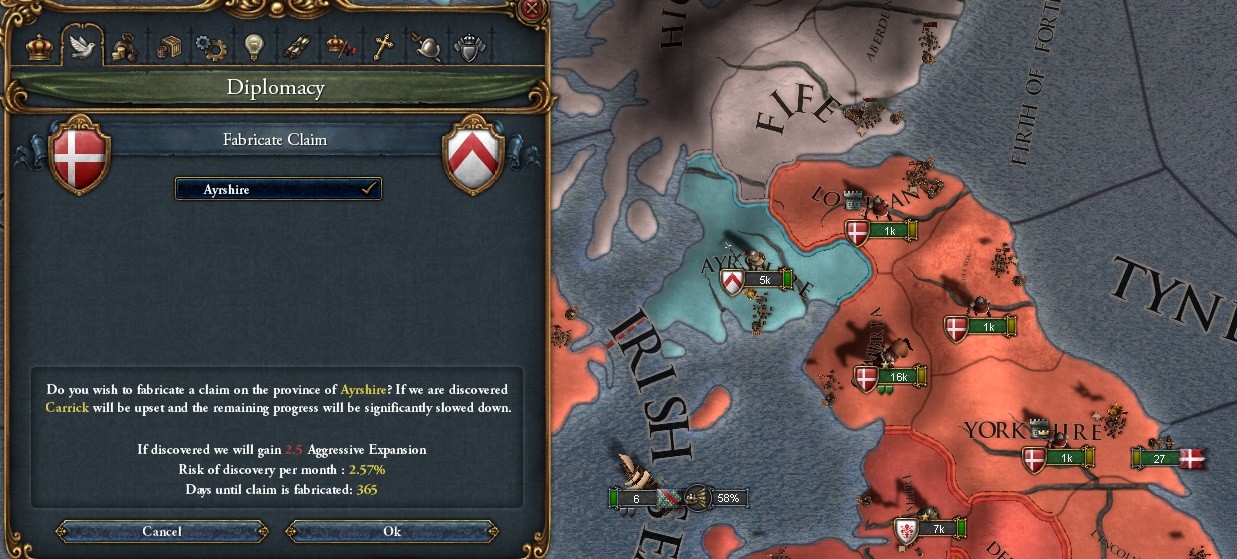 While Alfridh was throwing parties and calling Moots, she also had her agents expanding Danish influence covertly. One of her agents bribed the mayor of Ayrshire, who began openly petitioning to become part of Denmark on 4 November 1511. The mayor was promised power and wealth if he could secure the breakaway Norwegian province. Of course, Alfridh would never trust a Norwegian; she also built up the army to nearly 20,000 strong and stationed it outside Ayrshire.
While Alfridh was throwing parties and calling Moots, she also had her agents expanding Danish influence covertly. One of her agents bribed the mayor of Ayrshire, who began openly petitioning to become part of Denmark on 4 November 1511. The mayor was promised power and wealth if he could secure the breakaway Norwegian province. Of course, Alfridh would never trust a Norwegian; she also built up the army to nearly 20,000 strong and stationed it outside Ayrshire.
 The highest point of the Era of Culture was the creation of a new anthem for Denmark on 3 March 1512. The bard who created it knew what people liked: the entire lyrics of the song were "Go to Hel, Norway" over and over again to a catchy tavern tune. Of course, the modern anthem is quite different, but the actual melody is the same.
The highest point of the Era of Culture was the creation of a new anthem for Denmark on 3 March 1512. The bard who created it knew what people liked: the entire lyrics of the song were "Go to Hel, Norway" over and over again to a catchy tavern tune. Of course, the modern anthem is quite different, but the actual melody is the same.
The expansion of Castle Jorvik on 2 March 1514 was a symbol of the restoration of Hvitserk power and prestige. It did require a small loan, but by this time, banks were more forgiving of past Danish defaults. The decision to build a new Marketplace in Jorvik with part of the money also helped mollify people's concerns.
The Great Moot of 1514 was, in the eyes of the nobility, an admission of defeat by Alfridh. She would try to awe them into giving her more loans, which she would once again misspend. They resolutely agreed to refuse any such request unless she either married one of them or gave power to her presumably more pliable son. They got rude surprise when Alfridh announced the purpose of the Moot: the announcement of The Ban. As she decreed to the incredulous nobility, "the great houses of Denmark were faithless cowards when Denmark's queen needed their help. Well, faithlessness is now repaid. From this day forward, all nobles are hereby banned from Castle Jorvik except on the express invitation of the Queen or King. They will not serve court or in the army until this ban is rescinded or until direct application is made to the monarch in person. If they fail to pay all taxes on time, they will lose their nobility and decorate the walls of Castle Jorvik with their skulls."
At this, Ossor Malmfrid and the army rudely drove the noble families out of the Castle. Most of the officers of the nobility had already resigned their commissions, and those that remained were relieved of their commands. Wealthy commoners could become officers by paying the expenses of their regiment, and common soldiers were promoted to fill the remaining ranks. The first noblewoman to appeal the Ban was the Duchess of Saxe-Lauenberg, who fled to Denmark after she defied the Holy Roman Emperor's injunction to discipline a servant. Although she had hoped for a seat at the court, she was refused; however, she and Alfridh became good friends. Dorothea even married her son Gunnar, ensuring that the next King would benefit from strong female leadership.
Now that Alfridh's influence was secure and the banks trusted her again, it was time to act. Mercia's war with Gwynedd provided that opportunity; after answering Mercia's call, Denmark declared war on Ayrshire, which brought in Surrey, who owned the province of Kent.
Dorothea of Saxe-Lauenberg, later Queen of Denmark in her own right, arrived in Denmark just after The Ban. Her arrival on 30 December 1514 gave Alfridh a powerful friend and ally. By marrying Gunnar, Dorothea had more status than she ever would have had as a mere court advisor.
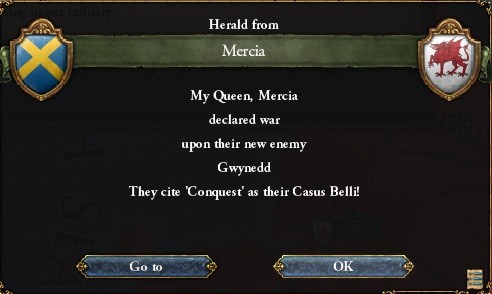 The war between Mercia and Gwynedd began 26 August 1515; it marks the rise of Denmark to prominence once again, although nobody knew it at the time.
The war between Mercia and Gwynedd began 26 August 1515; it marks the rise of Denmark to prominence once again, although nobody knew it at the time.
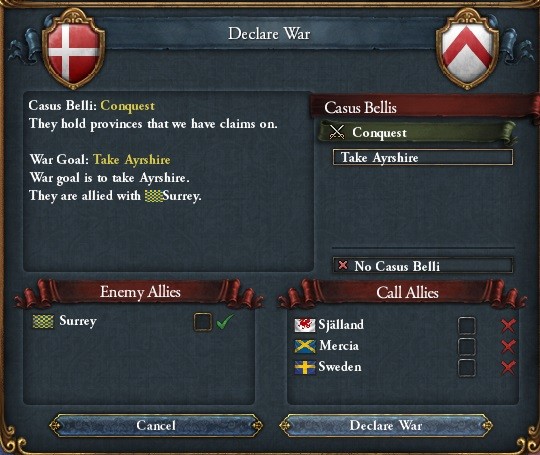 War with Ayreshire was inevitable, and the acquisition of Surrey (and the rich province of Kent) would be a major feather in the cap of Alfridh. Expecting that Gwynedd would prove a worthy foe, Alfridh timed the declaration for 9 March 1516 while Mercia would be distracted.
War with Ayreshire was inevitable, and the acquisition of Surrey (and the rich province of Kent) would be a major feather in the cap of Alfridh. Expecting that Gwynedd would prove a worthy foe, Alfridh timed the declaration for 9 March 1516 while Mercia would be distracted.
The war between Denmark and Ayrshire was the clearest sign that things had changed for Denmark. While everyone expected Denmark would win, most observers thought that the Danish army would demoralized and unwilling to fight. Instead, Malmfrid easily routed Ayrshire's army and settled in for a siege. The first stage of Alfridh's plan was working. Of course, Mercia would not cooperate. Instead of a long, drawn-out war with Gwynedd, Mercia overran them and conquered them a few weeks after the Battle of Ayrshire. That let Mercia declare its own war on Surrey, and with Kent being so much closer to London than Jorvik, Surrey was besieged almost instantly.
To make matters worse, it was Denmark that had to face Surrey's army. The army of Surrey was a tougher fight than Ayrshire, mostly due to Pal Pal, their fierce leader. Malmfrid still defeated the army, but while Denmark fought and died, Mercia got the glory of a relatively painless siege. Brandenburg saw an opportunity to regain its lost territories in Germany and declared its own war. The Alfridh of the past would have spent thousands of ducats fighting both wars; instead, she found a way to make an honorable peace with Brandenburg and focused on Surrey and Ayrshire. Even though Mercia acquired Kent, it was still a victory, and no loans were needed. Alfridh proved herself a savvy leader.
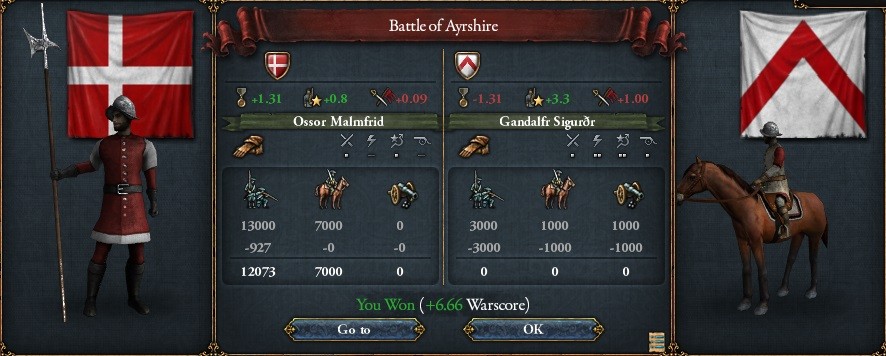
The victory of Ayrshire (30 March 1516) set the tone for the second half of Alfridh's reign. There were no crazy technologies; just brutal, quick, and efficient force. The use of enemy artillery did attract some notice, and some Danish engineers (including Prince Gunnar) started developing their own models.
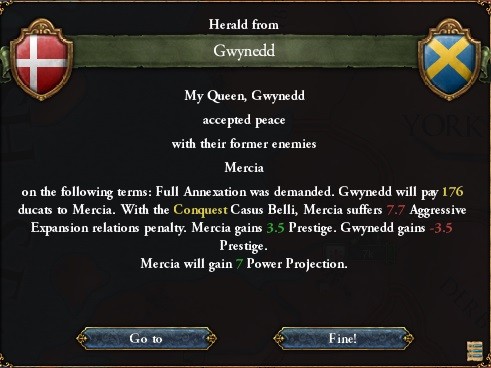 The rapid conquest of Gwynedd by Mercia on 14 April 1516 disrupted Alfridh's plans considerably. Needless to say, the Queen was not happy and resolved to get her revenge when it was possible.
The rapid conquest of Gwynedd by Mercia on 14 April 1516 disrupted Alfridh's plans considerably. Needless to say, the Queen was not happy and resolved to get her revenge when it was possible.
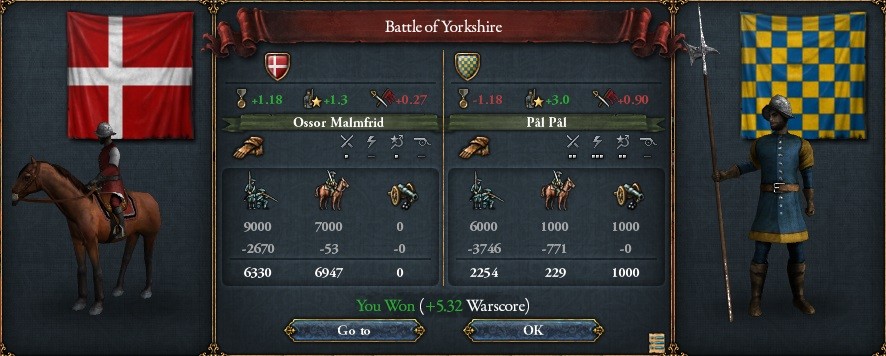 The Battle of Jorvikshire proved that Malmfrid's primary quality was loyalty, not ingenuity. This battle was a slugfest that Denmark did win, but not without a significant cost in blood. 27 September 1516 was not the finest hour of Denmark, but it was an important hour nonetheless.
The Battle of Jorvikshire proved that Malmfrid's primary quality was loyalty, not ingenuity. This battle was a slugfest that Denmark did win, but not without a significant cost in blood. 27 September 1516 was not the finest hour of Denmark, but it was an important hour nonetheless.
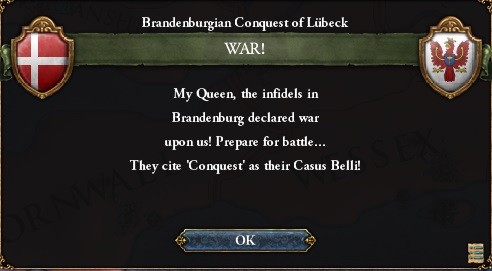
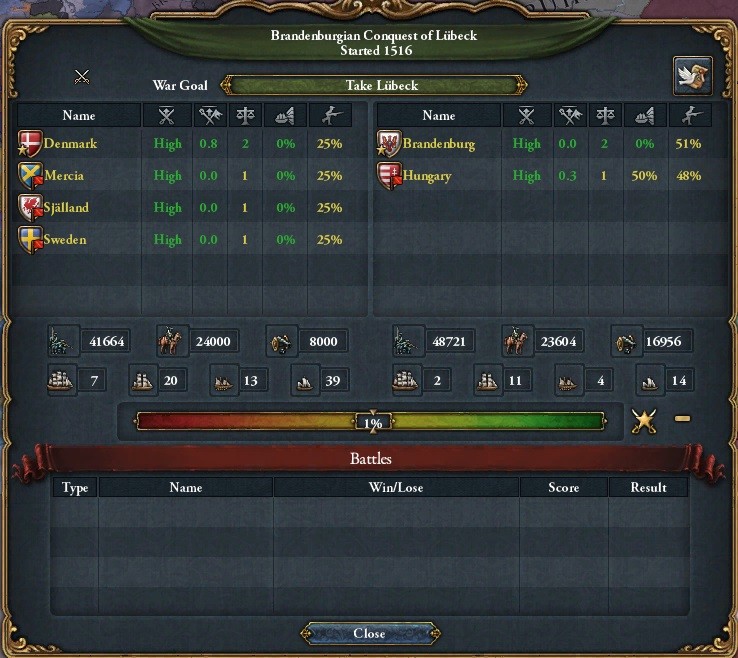
As soon as Alfridh got the declaration of war on 22 December 1516, her first thought was to fight on. It was Princess Dorothea who convinced her that the German coalition was too large to fight for a long period. Some Danes thought this treason, but more victories made it clear that Alfridh knew what she was doing.
The surrender of Surrey on 1 June 1517 was the last time that Alfridh would ever trust Mercia. Danes had taken disproportionately more losses yet gotten no benefit. Not even a portion of the 192 ducats went to Danish coffers. Posters and graffiti started appearing in Jorvikshire that proclaimed that "Mercia is Norway!" The art style was strangely professional for alleged graffiti.
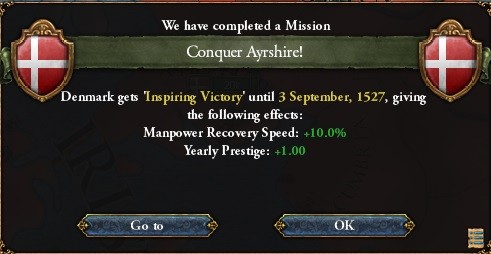 5 September 1517 was a great day for Alfridh. Without a single noble officer, the Danish army had conquered and obtained a province. Malmfrid was named Governor of Ayrshire and received a small portion of the 179 ducats received as reparations. The Marshal continued to serve the Queen, but already there were plans being made to bring a more innovative leader to the forefront.
5 September 1517 was a great day for Alfridh. Without a single noble officer, the Danish army had conquered and obtained a province. Malmfrid was named Governor of Ayrshire and received a small portion of the 179 ducats received as reparations. The Marshal continued to serve the Queen, but already there were plans being made to bring a more innovative leader to the forefront.
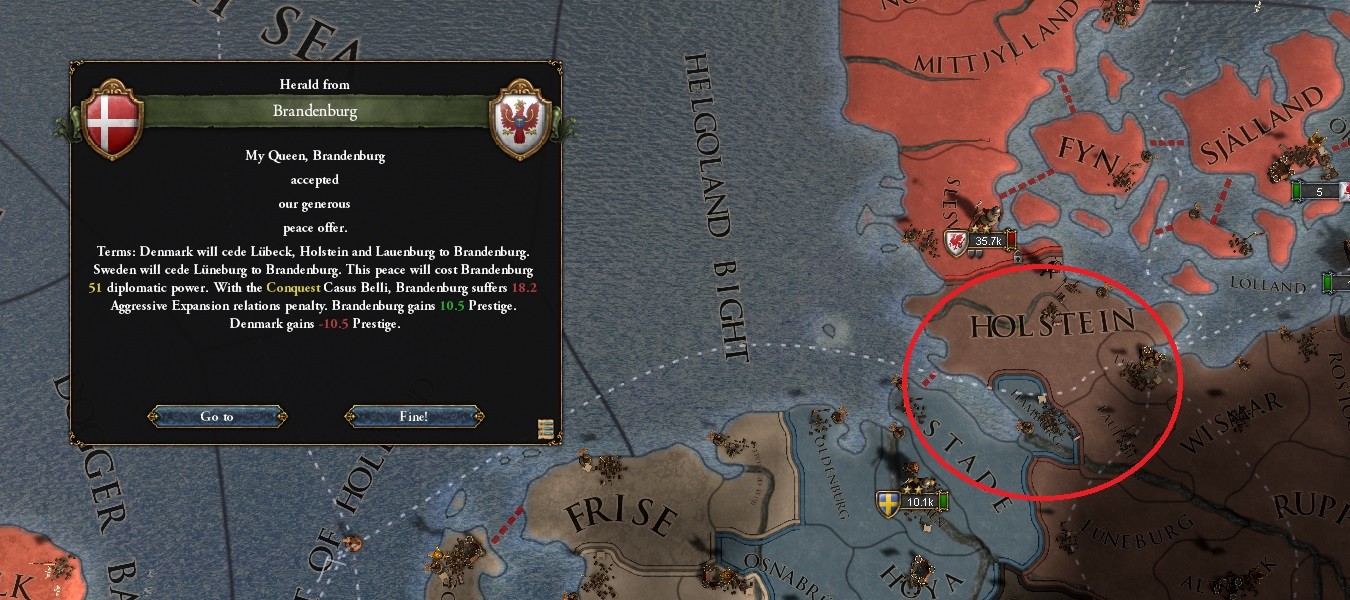 The "defeat" of 6 October 1517 did little to actually diminish Alfridh's reign. It was shrewd diplomacy and much appreciated by the leading scholars of Europe. Most importantly, Denmark retained a claim on the lost territories.
The "defeat" of 6 October 1517 did little to actually diminish Alfridh's reign. It was shrewd diplomacy and much appreciated by the leading scholars of Europe. Most importantly, Denmark retained a claim on the lost territories.
After the defeat of Ayrshire, Alfridh's next move was to acquire Essex from Wessex. Her reasoning was simple: Essex was adjacent to London. She had no intention of accepting Mercia's insult without repayment. She used the ducats from Ayrshire to pay off the outstanding loan, making Denmark debt-free once again. When the cities wanted more autonomy from the nobility, she happily accepted, further weakening her former rivals. War with Wessex came swiftly, although victory did not. It took three battles to finally eliminate the Wessex army, and casualties were steep.
What Alfridh had not anticipated was that Wessex would not fight alone, which presented a new intriguing opportunity. Florence had long been a thorn in Denmark's side. Alfridh decided to let Wessex escape the war only paying a little money; Florence was reduced to Denmark's vassal and their former conquest of Gwynedd became Danish. Strategically, this let Denmark threaten the Marches, which might distract Mercia in their eventual conquest. Further, Derbyshire and Lancashire would eventually be Danish as well, expanding Denmark by three provinces instead of one. Technically, Denmark did not get what they want, but they did get something even better.
The war with Wessex and Florence made two things increasingly apparent: the future of warfare was artillery and that Malmfrid could not be part of this future. Alfridh needed smarter, better educated officers if she was to defeat stronger foes in the future. She founded the first Danish Academy of Military Science and authorized a series of battlefield promotions. She encouraged new cavalry officers as a possible counter to enemy artillery. She reduced inflation as well, which let her initiate another important step in her anti-Mercia policy: the construction of a Castle in Lincolnshire to protect the southern approaches to Castle Jorvik.
The original target of Alfridh was Essex, as this plan from 7 November 1517 shows.
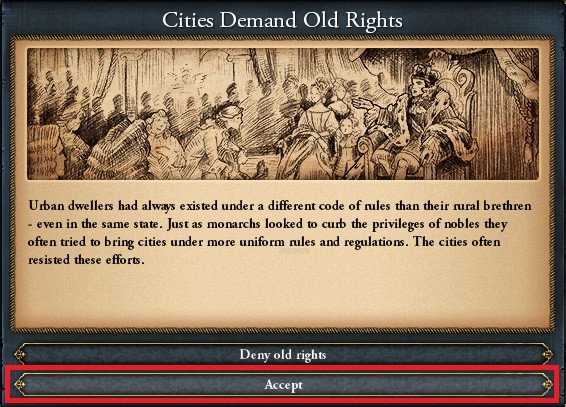 The Charter of 14 March 1518 formally severed even the purely theoretical relationship between the nobility and the cities. All officials would either be elected by the people of the city or appointed by the crown. The nobility could no longer draw upon cities for income. As an institution, the nobility became weaker than they ever had been before.
The Charter of 14 March 1518 formally severed even the purely theoretical relationship between the nobility and the cities. All officials would either be elected by the people of the city or appointed by the crown. The nobility could no longer draw upon cities for income. As an institution, the nobility became weaker than they ever had been before.
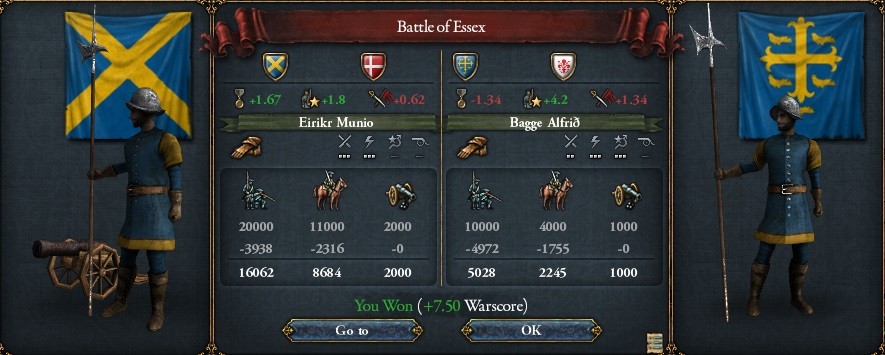
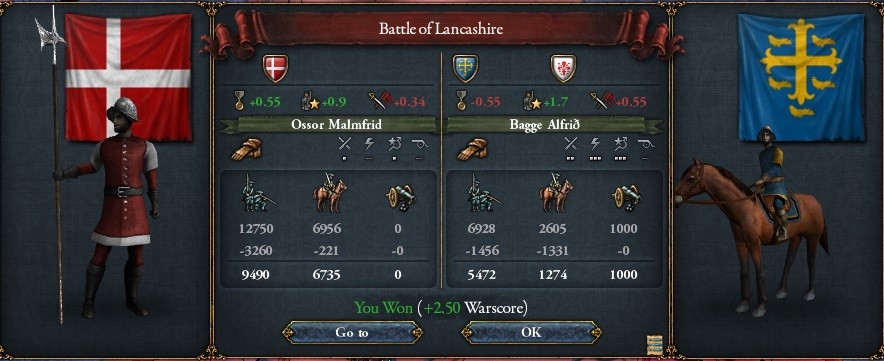 This pair of battles (20 January 1519 and 12 March 1519) finally gave Alfridh the impetus to modernize the military.
This pair of battles (20 January 1519 and 12 March 1519) finally gave Alfridh the impetus to modernize the military.
Victory over Wessex on 12 July 1520 left an independent Wessex but a stronger and more powerful Denmark. After Mercia was defeated, Wessex could always be conquered.
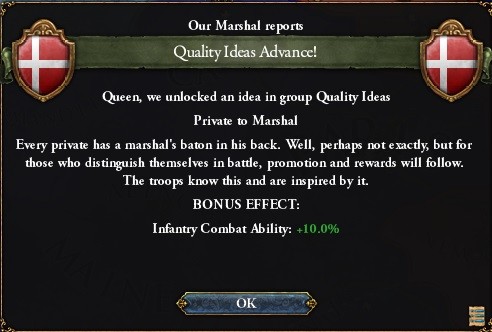 The first step in the military modernization of Denmark were the battlefield promotions authorized by Alfridh on 14 June 1521.
The first step in the military modernization of Denmark were the battlefield promotions authorized by Alfridh on 14 June 1521.
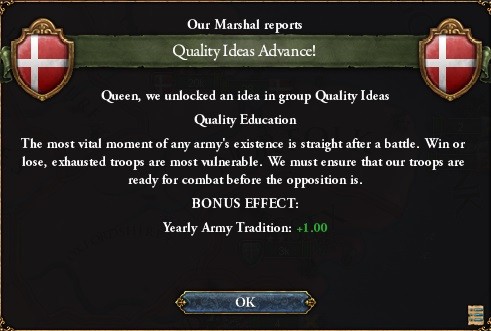 The foundation of the Danish Academy for Military Science (popularly called "Alfridh's Academy") was founded 29 January 1522. Prince Gunnar, who had resisted the army life in the past, was called upon to serve as an artillery instructor. As one of the finest inventors in the Kingdom, he was the perfect choice.
The foundation of the Danish Academy for Military Science (popularly called "Alfridh's Academy") was founded 29 January 1522. Prince Gunnar, who had resisted the army life in the past, was called upon to serve as an artillery instructor. As one of the finest inventors in the Kingdom, he was the perfect choice.
The Danish economy thrived after the war with Wessex, mostly due to tax revenue. This ledger is dated 4 March 1523; the next day, Alfridh reorganized the Bank of Denmark to reduce inflation to 13.47%.
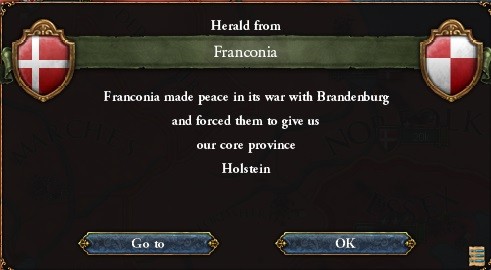 The return of Holstein on 18 July 1523 totally surprised, but pleased, Alfridh, who had not expected anything of the sort.
The return of Holstein on 18 July 1523 totally surprised, but pleased, Alfridh, who had not expected anything of the sort.
Alfrid's series of successes only made the nobles more desperate. They tried to mount resistance to her policies; Alfridh simply ignored them. She didn't even need to execute anybody to make her point. The very first Danish applications against the Ban started to come around this time. None were granted, but ever so slowly, certain noble houses started drifting closer to Alfridh. Finally, in 1525, Halfdan, the Thane of Cornwall, applied and was accepted as Grand Admiral of the Danish Fleet and Professor at the new Naval Academy. Cornwall's long tradition of seafaring made them a valuable ally. One of Halfdan's first decisions was to give a grant to one of the finest singing sailors in the fleet to travel Denmark and throughout Europe. The people loved hearing him at pubs and taverns throughout Denmark.
The second nobleman to be lifted from the Ban was a mere Baron of Lothian, but his service to the crown was unquestionable; he dressed a soldier in Norwegian clothing and engineered an "attack" on his castle. This gave Denmark the opportunity to punish Norwegian Fife. When Norway naturally refused, war ensued. This war showed how much Denmark had learned; few Danes died, and an expedition led by Halfdan of Cornwall even sacked Norway's castle across the sea. Alfridh had driven Norway completely out of the British Isles, ensuring she would never be considered incompetent or ineffective again. That left only one major rival to her reunification of the Norse in the isles: Mercia. She looked forward to repaying them for taking Kent.
The "revolt" of 14 March 1524 barely deserves the name. It did result in a few nobles returning priceless treasures to the Hvitserks, but nothing changed about Alfridh's policies.
The Danish Naval Academy dates from 25 October 1525, shortly after a new importation program to bring in new horses for the cavalry. The first rehabilitated nobleman was Admiral Thane Halfdan of Cornwall.
 The Wandering Sailor (whose real name is lost to history) was among the most popular Danes in the world after 22 March 1526; only Queen Alfridh, Princess Dorothea, and Prince Gunnar were more beloved (in that order).
The Wandering Sailor (whose real name is lost to history) was among the most popular Danes in the world after 22 March 1526; only Queen Alfridh, Princess Dorothea, and Prince Gunnar were more beloved (in that order).
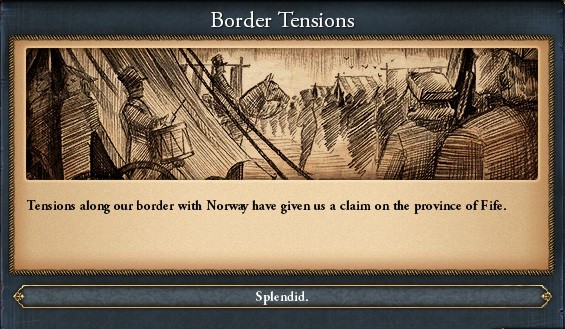 The obscure Baron who engineered Denmark's war with Norway was later named Thane of Fife; this document from 24 January 1527 is his first appearance in the history of Denmark, but not the last.
The obscure Baron who engineered Denmark's war with Norway was later named Thane of Fife; this document from 24 January 1527 is his first appearance in the history of Denmark, but not the last.
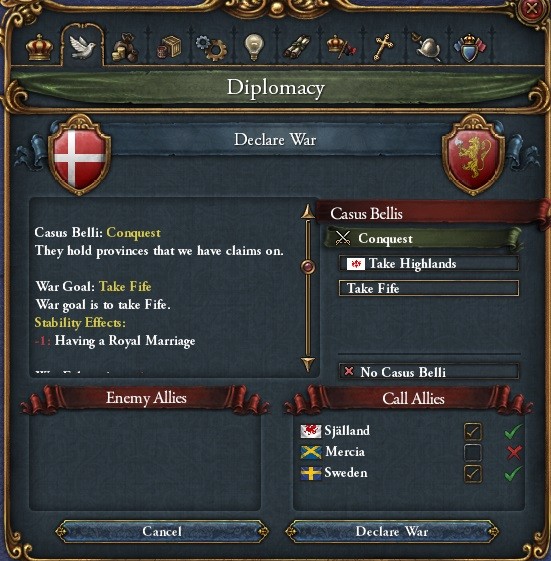 Mercia's decision not to take part in the war between Denmark and Norway ultimately sealed their fate. Some people in Denmark were angry because the King of Norway was a distant relation to the Queen of Denmark, but the hatred of Norway easily overcame that slight reluctance. The war began 1 March 1527.
Mercia's decision not to take part in the war between Denmark and Norway ultimately sealed their fate. Some people in Denmark were angry because the King of Norway was a distant relation to the Queen of Denmark, but the hatred of Norway easily overcame that slight reluctance. The war began 1 March 1527.
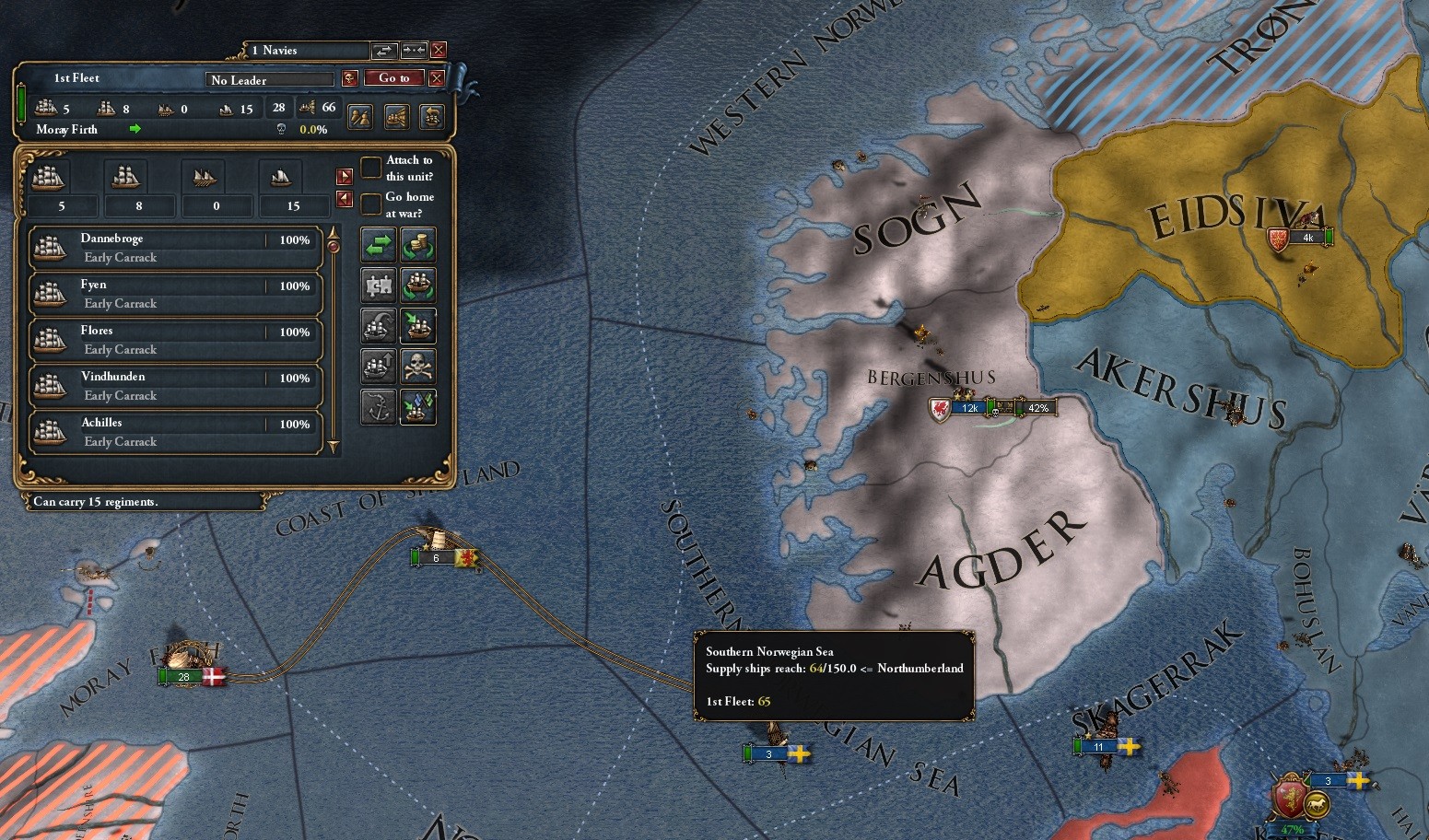 Cornwall's expedition to Norway, where he shelled Norway's capital, made him a hero among the Danes. This expedition was about half over on 28 May 1528. It marks the first attack of Danish forces outside of Britain since the 15th century.
Cornwall's expedition to Norway, where he shelled Norway's capital, made him a hero among the Danes. This expedition was about half over on 28 May 1528. It marks the first attack of Danish forces outside of Britain since the 15th century.
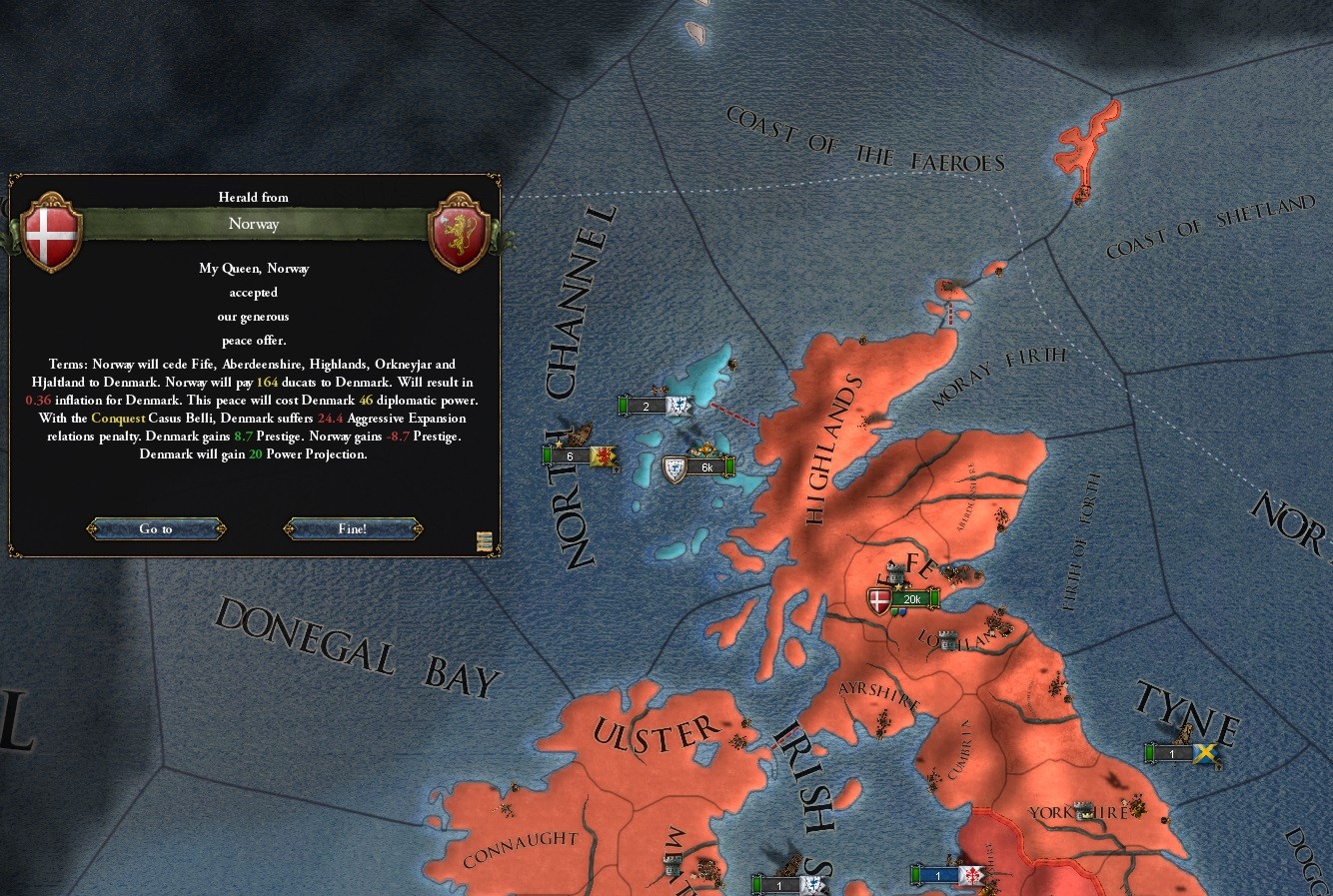 With the exception of a small island group in the northwest, Denmark had conquered all of Skotland with the treaty of 7 February 1528.
With the exception of a small island group in the northwest, Denmark had conquered all of Skotland with the treaty of 7 February 1528.
---------------------------------------------------------------------------------------------------------------------------------------------
One of the most important things that helped me out of the bankruptcy was some lucky + stability events. Spending on buildings helped too. I picked up Admin 7 and Miliary 9 during this update as well. I don't remember when I started putting more artillery in the armies, but it will happen relatively soon after this update. It was only when I wrote this update that I remembered how bad Malmfrid actually was.

By the way, things are still going to get worse, if you can believe that. You'll have to read on to see what happens next. Thanks for reading and feel free to share your feedback!
 No ETA on the update, but I do know that some of you have been waiting in suspense for quite some time. Your wait shall not be in vain!
No ETA on the update, but I do know that some of you have been waiting in suspense for quite some time. Your wait shall not be in vain!

